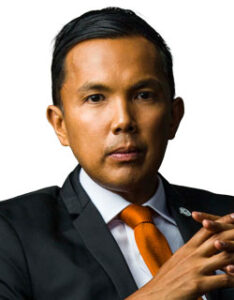The Philippines
A recent primer by the Philippine Central Bank, or Bangko Sentral ng Pilipinas (BSP), succinctly describes non-fungible tokens (NFTs) as instruments that generally represent a class of virtual asset that, as opposed to traditional cryptocurrencies, establish ownership of a unique physical or digital asset. This unique underlying asset – such as digital art, music or in-game tokens – makes it non-fungible, in contrast with fiat or cryptocurrencies that are identical, interchangeable and, thus, fungible.

Managing Partner at Gorriceta Africa Cauton & Saavedra in Metro Manila
Tel: +632 8696 0687
Email: msgorriceta@gorricetalaw.com
In the global blockchain community, NFTs have grown through the explosion of digital art projects, minted mainly through the Ethereum protocol and traded on popular NFT marketplaces like OpenSea, even infiltrating elite art auction houses like Sotheby’s and Christie’s. In the Philippines, the adoption of NFTs is more mainstream due to the rise of play-to-earn games like Axie Infinity, where players use unique digital characters called Axies as NFTs to earn native tokens that can be traded into a cryptocurrency with a corresponding and often appreciating fiat value.
While the NFT market continues to spread domestically, the legal and regulatory treatment surrounding this specific technology remains in a wait-and-see stasis. Nevertheless, NFTs may still fall under Philippine regulations depending on the nature of the business model or process where the NFT project is embedded, which may be subject to regulatory oversight or scrutiny.
As far as the BSP is concerned, NFTs with the characteristic of being used as a pure in-game token – meaning they have no utility or purpose outside of a gaming ecosystem – are specifically excluded from the definition of virtual assets regulated by the BSP. This makes sense, considering that the BSP is broadly concerned with the regulation of financial instruments and their circulation within the Philippine economy; NFTs having no utility as a means of payment (i.e. a fiat equivalent) are outside the BSP’s jurisdiction.

Mid-Level Associate at Gorriceta Africa Cauton & Saavedra in Metro Manila
Conversely, virtual assets with payment token or fiat characteristics fall under BSP’s regulation, pursuant to BSP circular No. 1108, and amended BSP circular Nos. 942, 944, and 1039 in relation to virtual asset service providers (VASPs, formerly known as virtual currency exchanges, or VCEs) that provide consumers with a facility to exchange fiat to cryptocurrency (or vice-versa), i.e. to acquire NFTs as well as redeem them into fiat currency.
If the VASP also performs activities in relation to virtual assets being used as a means of payment for goods or services (i.e. converted virtual assets are used to purchase NFTs), such a VASP may further be classified as an operator of payment system under BSP circular No. 1049.
Other than NFTs’ involvement in a facility or digital platform that is directly related to VC-fiat conversion or payment systems, the BSP’s current constraint to their proliferation would be reduced to warning the public against the volatility associated with NFTs, which may pose a financial risk to those interested in investing or acquiring such new and speculative digital assets.

Mid-Level Associate at Gorriceta Africa Cauton & Saavedra in Metro Manila
A potentially more active and concerned regulator would be the Philippine Securities and Exchange Commission (SEC), which has a mandate to ensure that securities offered, distributed and sold to Filipinos and residents within the Philippines are duly registered (unless legally excluded from the registration requirement), and where the securities issuer maintains compliance with disclosure requirements.
On this note, it is an open secret that while there are genuine utility and use cases for NFTs, the current climate and publicity for such digital assets are wildly speculative, with some NFT projects known to be trading for astonishing gains rarely seen even under traditional securities markets.
In the Philippines, traditional media outlets featured the profitability and exceptional gains made by locals who are early adopters and players of Axie Infinity, making it more enticing amid a protracted pandemic where job cuts, business closures and unemployment have run high.
The Philippine Securities Regulation Code (SRC) has a broad and encompassing definition for securities by taking into account investment contracts as part of such a definition. In this case, the SEC relies on the infamous Howey Test, patterned under US case law, to determine whether an instrument is an investment contract and, by extension, security.
This entails meeting four requirements, namely: (1) an investment of money; (2) in a common enterprise; (3) with the expectation of profits; and (4) primarily from the efforts of others. These requirements naturally call for a factual and case-to-case determination that can be challenging, given the complexities surrounding blockchain technology, the added intricacies of every NFT project, and the inherent anonymity usually provided in these ecosystems.
However, when called upon to act on its investor protection mandate, the SEC will step in and enforce the SRC. An example would be a recent advisory issued by the SEC Enforcement and Investor Protection Department, which issued a warning against Pogi Breeds. The group that goes by Pogi Breeds International, or CoPartners Pogibreeds, solicited money from the public for buying or breeding Axies and playing in Axie Infinity, promising gains to investors that could be liquidated after a certain period.
Where a common enterprise is involved in promising passive gains in exchange for an investment, the SEC’s jurisdiction becomes suddenly apparent by simply applying the Howey Test and identifying a security or investment contract veiled under an NFT project. However, in more complex ecosystems like decentralised NFT-based virtual estates (i.e. DecentraLand), or pure collectable digital art projects (i.e. CryptoPunks), the call for regulatory oversight becomes blurry, unless tailor-fitted rules are developed for such innovations (i.e. with the prospective digital asset offering and digital asset exchange rules of the SEC).
In terms of taxation and oversight of the Philippine Bureau of Internal Revenue (BIR), the fundamental rule is that all income derived from whatever source is subject to tax and, unless provided otherwise by law, will always be controlled. Hence, while the BSP and SEC may grapple on regulating NFTs, as long as gains are derived by taxable individuals and entities (i.e. gains derived by players of Axie Infinity), the tax code, through the BIR, shall impose tax liabilities on such gains.
BIR Revenue Memorandum Circular No. 60-2020 further emphasises this by giving notice to all persons doing business and earning income through digital transactions in electronic platforms and media, and other digital means, to ensure that they are duly registered with the BIR, and to pay the corresponding tax liabilities for such digital transactions.
In this case, the taxability of a transaction dealing with NFTs would highly depend on the activity performed. For players, it may be considered as income subject to the graduated income tax table. Hence, if the annual income of the player does not exceed PHP250,000 (USD4,950), no income would be due. Conversely, investors handling players may be considered to engage in regular conduct or pursuit of commercial activity. They may be subject to value-added tax, other percentage tax (as applicable), income tax, and other taxes and fees (e.g. registration fees).
Finally, under the IP regime, ownership of an NFT generally does not carry with it the transfer of copyright ownership to the underlying asset (i.e. digital work). To a blockchain evangelist, involving a regulator (the Intellectual Property Office of the Philippines) may even be unnecessary given the nature of NFTs hosted on a decentralised digital ledger that ensures its uniqueness and non-fungibility being the source of its value-generating proposition, as opposed to registration with a government-held (centralised) ledger.
The regulatory regime with respect to NFTs in the Philippines remains reliant on traditional financial, securities and taxation laws, which do not give regulators the necessary flexibility to fully govern the innovation and adoption of NFTs.
On a more promising note, regulators have shifted to a more open, sandbox approach in the hopes of attracting competitive technologies and economic opportunities that come with these technologies. Ultimately, they are mindful of the need to balance adoption of these innovations with the need to protect the public.

Gorriceta Africa Cauton & Saavedra
15/F Strata 2000, F. Ortigas Jr. Road
Ortigas Center, Pasig City
Metro Manila – 1605, Philippines
Tel: +632 8696-0687
Email: counselors@gorricetalaw.com
www.gorricetalaw.com




























